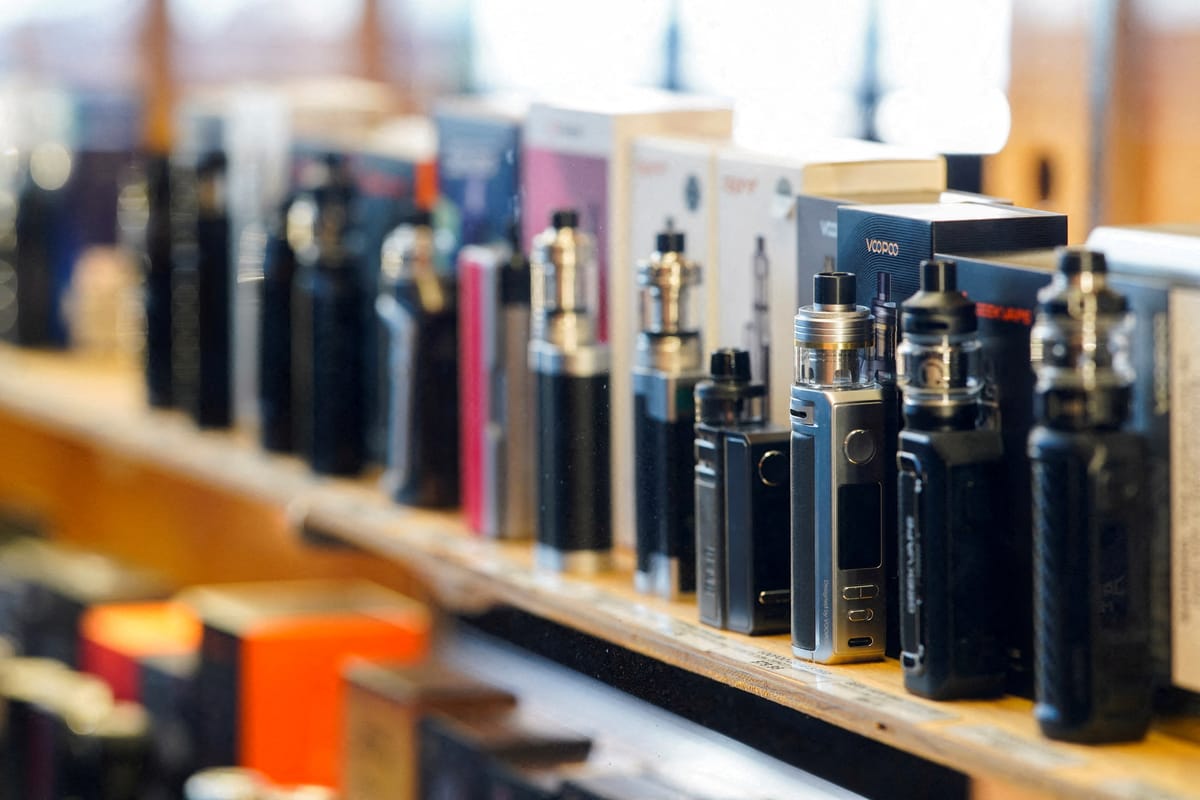The WHO pushes for a tobacco-style crackdown on the vaping industry
Scientists agree that kids and teens should stay away from smoking, and, more recently, vaping.

A few minutes every morning is all you need.
Stay up to date on the world's Headlines and Human Stories. It's fun, it's factual, it's fluff-free.
Scientists agree that kids and teens should stay away from smoking, and, more recently, vaping. But, e-cigarettes and vapes are still attractive to younger people, partly because of the “fun” flavoring components used to make the vaping experience more enjoyable. While vapes can be found in more traditional cigarette flavors, like menthol, some vape flavors almost seem designed for children/teens to consume. Like “tropical rainbow blast,” “vanilla ice cream” and “blue razz ice,” all offered by vape giant Elfbar.
“The tobacco industry relentlessly targets young people with tobacco and nicotine products resulting in e-cigarette use increasing and 9 out of 10 smokers starting before the age of 18,” the World Health Organization (WHO) says.
E-cigarettes are marketed as a healthy alternative to cigarettes and they are often used by cigarette smokers to curb their addictions (even though there’s some evidence that they’re not really “effective for quitting tobacco use”). But, with children, these products have been shown to actually kickstart nicotine addiction. Nicotine has also been shown to harm brain health development.
“There has also been some research indicating that even when nicotine is not present, ingredients in e-cigarettes, particularly flavoring agents, independently carry risks associated with heart and lung diseases in animals,” explains Jason Rose, volunteer chair of the American Heart Association scientific statement writing committee.
One of the often-used flavoring chemicals, diacetyl, is associated with lung disease. It’s been known to cause bronchiolitis obliterans (“popcorn lung”), which leads to permanent lung scarring. Vitamin E acetate is also associated with lung damage.
In September, the WHO advised that all schools ban nicotine and tobacco to protect students. Now, the WHO is taking this idea a step further, calling for tobacco industry-style control measures to be placed on e-cigarettes and vapes. It’s proposing the ban of all flavoring agents in these products, plus regulations like installing high vice taxes on them and banning their use in public spaces. While the WHO can only give non-binding advice, it says that “urgent action is needed” in this area to protect kids.




Comments ()